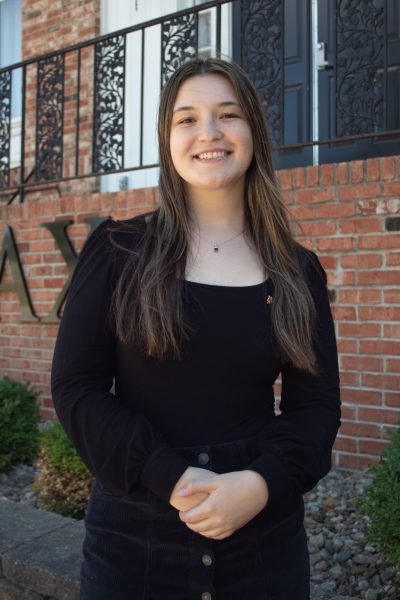
Millikin is known for its theater program. If you are interested in theater, you can audition for a show, even if you aren’t a theater major.
However, it’s rare to see non-theater majors working on Pipe Dreams or main stage shows due to the hefty time commitment they require, but many believe it’s a great opportunity.
“I took the opportunity because, when will I ever do anything with theater?” Shaina Yumol, a sophomore art therapy major, said.
Yumol received an email about participating in a theater major’s capstone and decided to take the leap of faith and audition for it. However, students who are not in the School of Theater and Dance (SOTAD) usually don’t get the opportunity to audition for theater majors’ capstones.
“[Capstones] are little opportunities to be involved in SOTAD, because you can’t really get involved in other schools unless there’s a niche opportunity,” Yumol said.
Although Yumol is excited to get involved in SOTAD, she expresses how isolating it can be to be a non-SOTAD major trying to fit in with the students who are members of the school.
“There are things that I don’t know about theater that all these other people do, and there are silent rules in theater that you just know, and I don’t know any of those rules,” Yumol said.
Freshman creative writing and music double major Karley Blau received a role in one of this semester’s Pipe Dreams shows, In Transit, and has a similar outlook.
“Sometimes it is very isolating, and it feels like you have to work twice as hard to prove yourself because, for example, a musical theater major has auditioned and already got into the School of Theater and Dance,” Blau said. “So even if you both audition for a show, it feels like higher pressure on you to prove that you can do it.”
Although it may feel isolating to enter the world of SOTAD as a non-SOTAD minor, Blau enjoys her time at Pipe Dreams.
“Pipe Dreams creates a really friendly environment, at least in my experience,” Blau said. “I’ve loved it.”
Senior English major Page Shields grew up in the theater world, and in her junior year, she began stage-managing for Pipe Dreams.
“I’ve always been involved in theater,” Shields said. “My parents were theater people; I was raised under a tech table. I was in theater all through middle school and high school.”
Shields has enjoyed her experience and even has a stage-managing job lined up after college.
“I will be working at Little Theater on the Square in Sullivan for a certain number of months,” Shields said.
Not only does Shields have this job opportunity, but she also has another stage management opportunity that she cannot share yet. However, since Shields isn’t a stage management major, she is still tasked with completing her English homework, which isn’t an easy feat.
“Dr. Bates has been very understanding; I’m doing a fellowship with her,” she says. “It takes me a lot longer to edit when I’m in rehearsals [from] 5:00 to 10:00 every day, and then I have clean up. I’m not home until 11:00; that is six hours of my day.”
Shields is not alone in this struggle. As a double major who is acting in a play, Blau has a lot on her plate.
“Genuinely, I’m just a person who’s always been used to being busy,” Blau said. “Sometimes it’s hard to get homework done. But if you use your study time wisely, it’s pretty manageable.”
Even though pursuing a position in the theater world at Millikin may make it harder to complete your major’s homework, it can also aid students in different parts of their academic careers or their participation in plays and musicals. For Blau, English classes sometimes help with her acting.
“I love when [authors] describe how people move or how their faces look when they do things,” Blau said. “Sometimes I see a character doing something in a book, and I’m like, ‘Oh, next time I’m acting, I should try and work that in.’”
For Shields, her future in stage management influenced what her senior writing portfolio would be.
“I was able to write a genre studies analysis of my own stage management paperwork, which was really cool, and compile a bunch of it into a portfolio for myself that I’m now using and applying to apprenticeships,” Shields said.
As an art therapy major, Yumol saw this as an opportunity to learn more about the different kinds of therapies she could explore. One of these therapies she was inspired to look into is dance movement therapy.
“[Dance movement therapy is] where you dance or move in a sense that is in healing,” she said.
Although deciding to get involved in the SOTAD world may seem like it’s a death sentence as it seems like you’ll never be able to get your homework done, many people have found friends, joy, and even another outlook on their major through participating in SOTAD performances. Perhaps it is worth the extra work for some.

